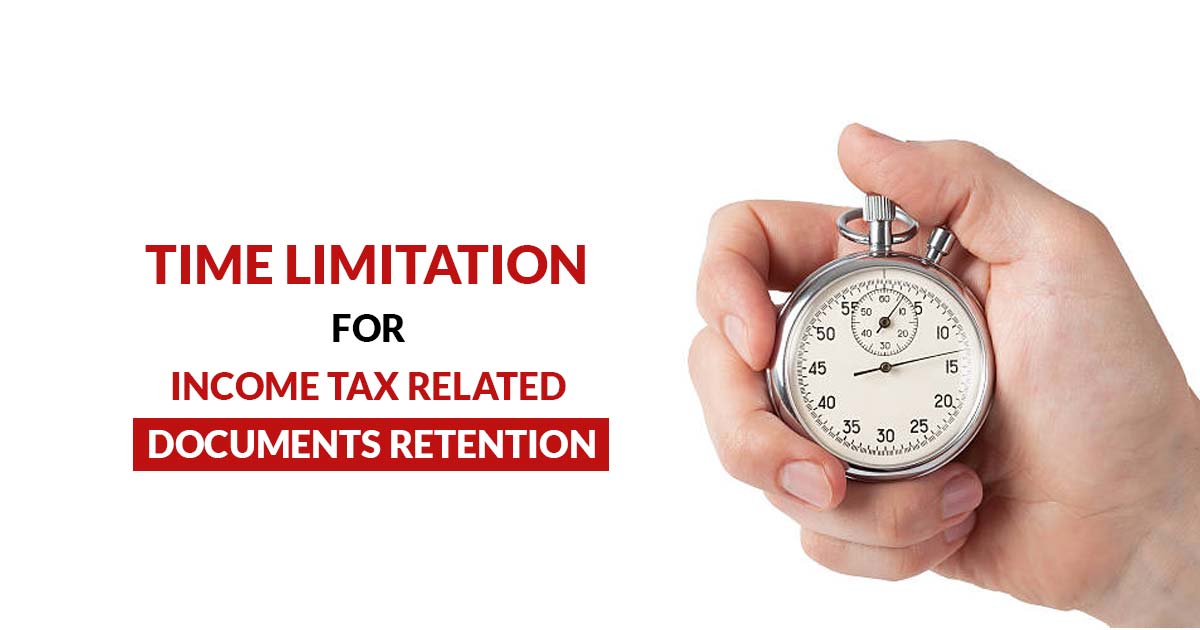
Income tax return documents generally include rent receipts, rental agreements, section 80C tax savings, and other related documents. As a regular income tax filer, you might be confused as to what should be done with these documents once the return has been filed or for how long you need to keep them. Well, here’s your answer.
The interesting thing to know here is that the Income Tax department doesn’t actually ask you to submit any document while filing your income tax return, as I-T returns are filed on a self-assessment basis. However, the I-T department has the right to send you a notice demanding that you verify your documents in response to the claims made by you in your returns.
Fill Form for ITR & TDS Compliance Software
Major Key Points that a Taxpayer Should Know
- Individuals who file their Income Tax Returns (ITR) should hold on to their previous ITR records and associated financial paperwork for a period of 10 years starting from the conclusion of the assessment year.
- In the event that a person earns income from foreign assets or has a financial stake in a foreign entity, they are required to retain their ITR documents for a duration of 16 years.
- With effect from 01-09-2024, the time limit for issuance of notice has been revised. The normal time limit is three years and three months from the end of the relevant assessment year. However, where the Assessing Officer has evidence of income amounting to ₹50 lakh or more that has escaped assessment, the time limit is five years and three months from the end of the relevant assessment year.
- If a taxpayer anticipates the possibility of encountering a tax-related dispute or assessment in the future, it is advisable to maintain their records for an extended duration.
- The most prudent approach is to digitise the documents and preserve soft copies of ITR records that might come under scrutiny in the future.
For how long should you keep the I-T return documents?
According to Taxmann’s DGM & Chartered Accountant Naveen Wadhwa, the Income Tax Act doesn’t have any rule regarding how long a taxpayer should keep the documents with them. However, section 149 of the Act describes the time limit for sending an income tax notice to a taxpayer. Based on that, I-T return documents should be maintained for that period. According to section 149 of the I-T Act, the Income Tax department can send a notice to a taxpayer within seven years from the last date of the respective financial year.
With effect from 01-09-2024, the time limit for issuance of notice has been revised. The normal time limit is three years and three months from the end of the relevant assessment year. However, where the Assessing Officer has evidence of income amounting to ₹50 lakh or more that has escaped assessment, the time limit is five years and three months from the end of the relevant assessment year.
- That means, if you are filing an income tax return for FY 2024-25, you should keep the related documents until 2030-31.
- This time limit of five years and 3 months is applicable to all types of taxpayers, including salaried, self-employed and other professionals.
What if I’m paying Income Tax on foreign properties?
If you are paying income tax on income made through your properties outside India, you need to maintain the related documents for a longer period. According to Wadhwa, Tax Return documents related to income from foreign properties should be kept safe for at least 16 years from the last date of the respective financial year.
Read Also: Free Download Income Tax Return E-Filing Software










Yes, spouse’s income can be clubbed with yours provided the source of funds belongs to you. You may file ITR 2 but better go through various ITR forms and select the appropriate one after fulfilling eligibility. If your spouse’s income is more than yours, then you cannot avail clubbing u/s 64. You need not inform IT Dept. Inclusion of spouse income in your ITR is enough. However, if the source of funds was independently earned by your spouse due to her skills like earning as a teacher or as a professional and source of funds has not been provided by you, then spouse’s income cannot be clubbed with yours. Your spouse may require to separately file her own ITR, without clubbing.
If any tax payer, include his spouse income with his income under section 64 and pay tax accordingly. Than which itr form/ schedule to be filled by spouse? How he can inform ti income tax department that tax is paid of his spouse? Please clarify.